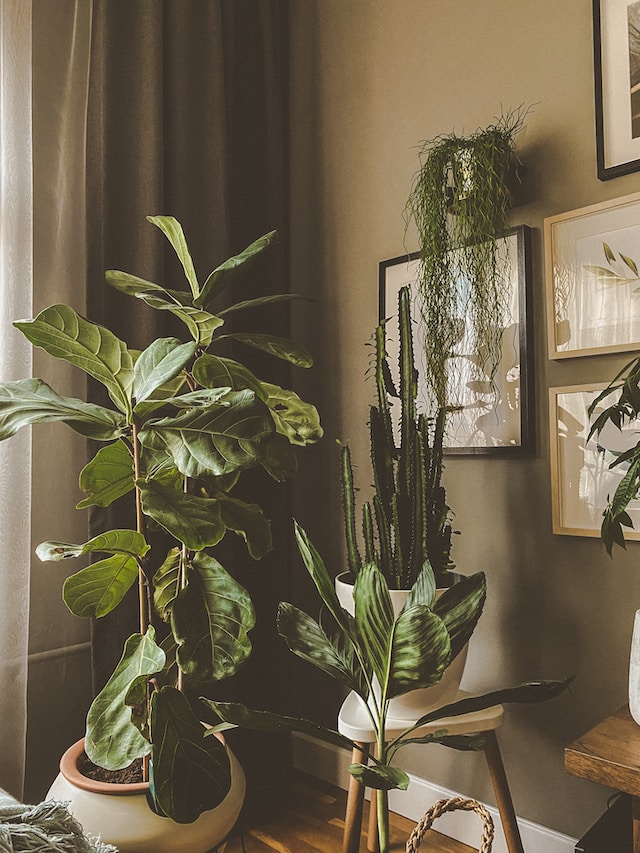
How do you keep your houseplants happy? Have you tried everything and yet you are still struggling with your favorite plant? Learn these simple but effective tips and tricks to take care of your house plants with us.
Choose the right plants:
Select plants according to the condition of your garden. If you want simpler plants that will not require extra caution or care, then it is recommended to use native plants. Native plants are well adapted to the environment and won’t need much care as compared to imported plants. These can grow in your home gardens under natural conditions without much effort.
Spin your plants:
Plants tend to grow in the direction of sunlight to prepare enough food to sustain their growth and reproduction. Keep spinning your plants regularly so they get even sunlight everywhere otherwise, they will be lopsided. Changing sides is especially important for plants that are partially in shade as compared to plants facing direct and even sunlight.
The right amount of water:
Water your plants according to their needs and avoid over-watering them. Giving a plant too little water can cause wilting and flooding it in water can harm its growth. It is recommended to avoid this trouble by using sports with holes in them so that excess water can seep out of the holes. You can also use pebbles for the same purpose. With this trick, your plants can grow to their full potential.
Dusting plant leaves:
Another hack that garden gurus are apt in is dusting the plant leaves every day. For outdoor plants garden hose does this trick but as for indoor plants you will need to give your plants a hand. Dust on leaves will affect their CO2 absorbing capacity and reduce the sunlight reaching the leaves. Moreover, dusty indoor plants won’t be very appealing to look at. That is why plants need regular dusting just like your furniture. You can use a damp cloth or a duster to clean your houseplants.
Pruning:
Plants need constant care. Pruning removes damaged branches, decaying fruits, or flowers. Pruning plants can help plants grow better and use food efficiently. It makes room for the growth of new leaves, fruits, and flowers. It will also shape your plant and make it more presentable to look.
Removing dead and decaying plants:
Removing dead and decaying parts of the plants also removes infections and pests that can harm healthier plants. Damaged parts of the plants put a strain on the nutritional supply of the plant. Once you remove these damaged parts, plants will be able to focus on their healthier parts.
Buy healthy plants:
Buy healthy plants. In nurseries, a plant may look healthy and have weak immunity or some imperceptible infection that may become visible after a few months. For a healthy plant selection;
- Check plants before buying as they may have infections or pests. Look at the underside of the leaves for infections and pick the plant with full bushy healthy growth.
- Look for healthy foliage
- It should have healthy roots
Watering in summer:
Plants need extra care in the scorching heat of summer. Increase humidity in warmer weather and try to keep your plant in a cooler place away from direct sunlight. They may also require more water because there is an increased rate of transpiration in the summer season.
Watering in winter:
In winter, however, plans do not need excessive water. The days of winter are much shorter, so the rate of transpiration and photosynthesis of plants is also reduced in winter. This way their growth is also hindered and they require less water.
Right Garden Soil:
Different plants have different water and nutritional requirements. your garden soil can help you choose the right plants for it. Check the pH, humidity, and type of soil before adding it to your pots. Loam is the most suitable soil for garden plants.
Repot older plants:
Overgrown plants require more space. Transferring it to a new place will allow it to grow its roots further down. your older plant so it can grow healthier foliage and roots.
Fertilizers:
Using fertilizer will give plant nutrition punch. Add fertilizer periodically because plants are less active in winter and their growth is also slowed down so they don’t require fertilizer.
Organic fertilizer:
Chemical fertilizers may be harmful to your little plants. Try organic fertilizers for healthier-looking plants. Organic fertilizers are both safe and pocket-friendly. For example, You can add egg shells, coffee grounds, banana peels, or orange peels to the garden soil. These are rich in nutrients and inexpensive. However, avoid excessive usage because over-nutrition is destructive to plants.
Final words
There is an increased trend of indoor plants recently. If you are planning to build a new house garden or looking for ways to take care of your houseplants, these tips will help you for sure!
With these proven tricks you can witness a visible growth increase in your plants. You will have your desired house garden full of healthy and beautiful plants.